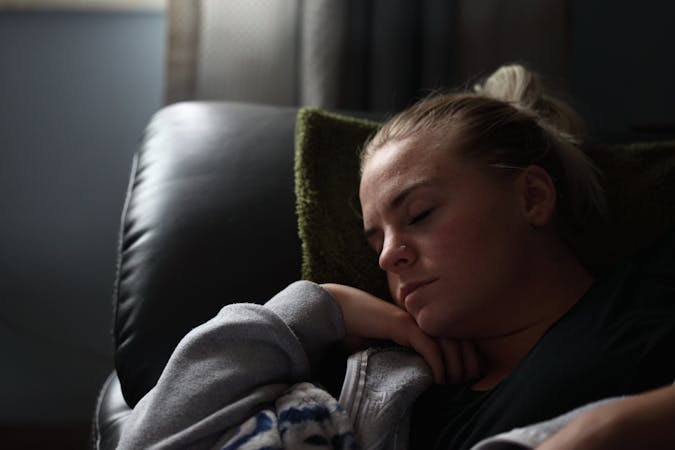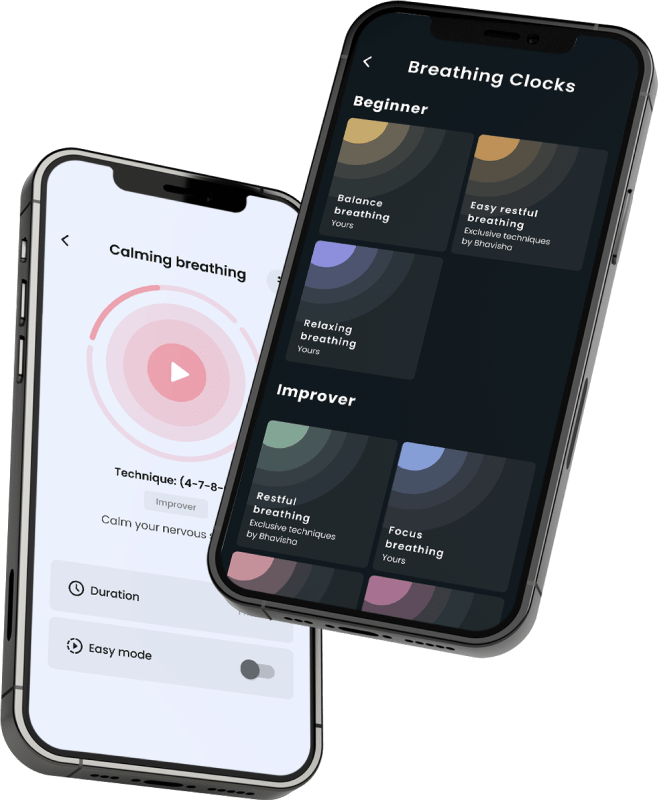Is It Healthy for Us To Sleep Late But for Eight Hours?

Sleep schedules differ just as much as personal preferences do. Scientists now believe it is as natural to have a later sleep schedule as it is to prefer tea over coffee. Some influencing factors in this are environmental (such as culture or lifestyle), but there is also a genetic component at play.
Despite this, there is a plethora of discussion around whether sleeping late negatively affects health. There are also many self-help articles aiming toward adjusting a sleep schedule towards more "appropriate" nighttime hours.
Why Do Some People Sleep Later Than Others?
The circadian rhythm is a recurring 24-hour cycle that occurs across almost every species on Earth. During this cycle, a living creature has higher or lower energy levels and differing behaviours, depending upon the time of day.
Most humans feel much more comfortable sleeping at night than during the day, due to the influence of environmental factors. Melatonin, a sleep hormone, is naturally produced in the late evening, but the time of its production varies greatly between individuals.
For example, teenagers naturally develop a later circadian rhythm than children or adults. This means they are much less likely to function well if required to wake up early for school or college. Much like most teenagers, some adults have an in-built body clock that requires later sleeping and waking times. Science literature labels naturally late sleepers as having "late chronotypes".
Nowadays, many late sleepers are diagnosed with a disorder called Delayed Sleep Phase Syndrome (DSPS). This is where a person's sleep times are prominently out of sync with the "normal" range, and is thought to affect roughly 15% of the world's population. For example, a person with DSPS may naturally fall asleep at 4am and wake up at 1pm feeling refreshed. However, due to societal demands, people with DSPS often try to push back against their internal clock and wake up at an earlier hour. This can have negative effects on health and wellbeing, with about half of DSPS patients experiencing depression.
Aside from the biological cause of late sleep in some individuals, there are environmental factors that can come into play as well. Many people are now familiar with the effect of artificial light from technical devices, causing melatonin to be produced later.
Other factors can play into poor sleep, too. Healthline.com warns of the effects of living in a city on getting a good night's sleep. Traffic noises increase cortisol late into the night which can prompt alertness, and polluted air is shown to decrease sleep duration in recent studies.
Does Sleeping Late Matter if You Get 8 Hours?
This all depends upon how late, and how regular, a person's sleep patterns are. For example, falling to sleep at 4 am and waking at 12 pm will cause a person to miss out on a large amount of daylight, especially in winter. This can be problematic for various reasons, including our physical and emotional health.
Another matter of concern is whether they go against their own rhythm. Certain people are required to work night shifts, for example, regardless of whether they are naturally night owls. Going against the needs of your biological clock can have ill effects on health in the long run.
Another factor that can affect late sleepers is a phenomenon known as "social jet lag." In today's world of standardised work routines, many of us feel pressured into forcing our circadian rhythm into a more early start each day. There is a common bias against late sleeping that deems the tendency a bad habit, or a sign of inherent laziness. Many people feel deeply ashamed by sleeping in too late. Despite their best efforts, a lot of people are unable to re-programme their brains to develop an earlier sleep routine. However, they continue to try to meet the necessary standards of their work or social environment. This can spell chaos for our overall health.
However, for many others, sleeping later and waking up later is a worthwhile compromise. Nowadays, more researchers are evidencing the natural variations in sleep tendencies, suggesting that a person should follow their natural body clock rather than push themselves to become a morning person.
Is It Better To Get 8 Hours of Sleep or Wake Up at the Same Time?
Many people see 8 hours of sleep as the golden rule for getting a good night's rest. However, many things can make this practise ineffective on its own. For example, interrupted sleep can break a sleep cycle, interrupt valuable processing, and cause a person's brain functioning to go into disarray the next day. Some people also require more than the average 8 hours, whereas others require much less sleep overall.
One idea that is supported by science is that people should always aim to keep up a routine at night. Going to bed and waking up at the same time has been shown to be the best practice for maintaining our health. In fact, one US study of university students revealed that irregular sleeping patterns have a negative impact on academic performance. It also meant that participant's circadian rhythms became delayed, resulting in later sleeping times.
How Much Sleep Should We Really Be Getting?
This depends upon your genetics, health, and lifestyle. Generally, an adult needs between 7 and 9 hours of uninterrupted sleep per night. A person will generally stabilise in how much sleep they require during young adulthood and stay at the same level for the rest of their life. Sometimes when people become elderly, though, they report needing less sleep overall.
Sleep disorders and other health mental conditions such as depression can interfere with our sleep schedule. Also, physical health conditions can drain a person's energy. We need to sleep more when we are unwell due to the reparative action of sleep on the body.
Some people report feeling that they've got enough sleep after very few hours per night. This can be due to a genetic mutation called Short Sleeper Syndrome (SSS) that effects about 1% of the population worldwide. SSS is characterised by people regularly getting less than 6 hours of sleep per night without any negative consequences.
In order to figure out how much sleep you need per night, it is recommended to do some calculations. Take the time you wake up each morning and count back 8 hours. Use this as a bed time for a week and see if you have trouble waking up without an alarm. If you feel tired still, count back in increments of 30 minutes until you have the best fit. There may be some variation if you don't tend to feel sleepy once in bed, but it works as a general rule of thumb.
How Can I Wake Up Early After Sleeping Late?
A later night thank usual can push our body clocks out of sync for the whole day. However, some tricks can help boost you in the morning and keep your brain and body active.
Play the right music
By playing upbeat, medium-to-fast tempo music that you enjoy, you will increase alertness, positivity, and blood flow to your body and brain. Try listening to music for ten minutes after you wake up or as you go to work.
Take vitamins
Not getting quality sleep can lower your immune system. Be sure to take vitamins to keep your body feeling its best.
Get plenty of light
Light exposure prompts the brain to wake up in the morning. Try taking a walk or increase the natural light in your workspace.
Try a wake-up drink
It's not just caffeine that can boost you in the morning. Some people report that a cold infuse such as water with lemon and ginger can provide the energising power of coffee but without the additional jitters.
Summary
Everyone has a unique circadian rhythm, meaning there is no "perfect time" in which everyone should be in bed. For many people, it is natural to sleep late on a regular basis. They would naturally wake up later in the day but still get the sleep requirements they need. However, due to societal expectations this is not always possible.
If a person is a night owl they often find themselves working against their biological clock and missing out on quality sleep, causing a state known as social jet lag. This can lead to a variety of health consequences including lower immune system, high blood pressure, and risk of heart disease.
Studies have shown that it is more important to go to sleep at the same time than it is to go to bed early. When our body clocks go out of sync, we have trouble getting quality sleep. A person should pay attention to their circadian rhythm and go to sleep when they naturally feel tired.
Frequently Asked Questions
Is It Too Late To Change My Sleep Schedule?
It is never too late to change your sleep schedule, as long as it is a natural fit. Be sure you're making the right changes for your biology, rather than trying to change your schedule to fit around your life.
If you've been having late nights for a long time and wish to adjust to an earlier bed time, it may be necessary to make some lifestyle changes to aid your adjustments. Limit screen time in the evenings, avoid spicy or harder-to-digest foods in the evening, and try out some wind-down exercises.
How Does Sleeping Late Affect Your Health?
Again, this is largely dependent on a person's natural sleep rhythm. For people who find themselves regularly sleeping later than is natural for them, or regularly miss out on sleep due to late nights, mental and physical health consequences can occur.
According to medical specialists, people who regularly lose out on sleep have a higher risk of developing high blood pressure and other heart problems, such as cardiovascular disease.
Lack of sleep can carry other health risks too, such as kidney disease, diabetes, and stroke.
Is Sleeping Late Bad for Hair?
When we don't get enough sleep, our stress levels rise. This accumulation of stress in the body can wreak havoc on our capacity for normal cellular functioning. This can indeed lead to hair thinning and hair loss.
Does Sleeping Late Affect Your Skin?
Just as with our hair, a poor amount of sleep can have a terrible impact on our cells. This means poor skin health and an early onset of skin aging.
Does Sleeping Late Affect Your Brain?
Sleep deprivation can affect our brain function even in the short term. A night owl may find themselves irritable and lacking in concentration if their work hours begin first thing in the morning. Over a long period of time, sleep deprivation (even if just under seven hours per night) can heighten the risk of developing dementia.
Does Sleeping Late Affect Mental Health?
According to the NHS, chronically missing out on sleep causes a higher risk for clinical depression and general anxiety disorder in adults. When people with anxiety or depression were surveyed to calculate their sleeping habits, it turned out that most of them slept for less than 6 hours a night.
Does Sleeping Late Make You Gain Weight?
When we go to bed late and miss out on essential sleep, our body produces less of the hormone that makes us feel full and more of the hormone that makes us hungry. This means we are much more likely to eat higher-calorie foods and crave junk food, causing a higher rate of obesity.

